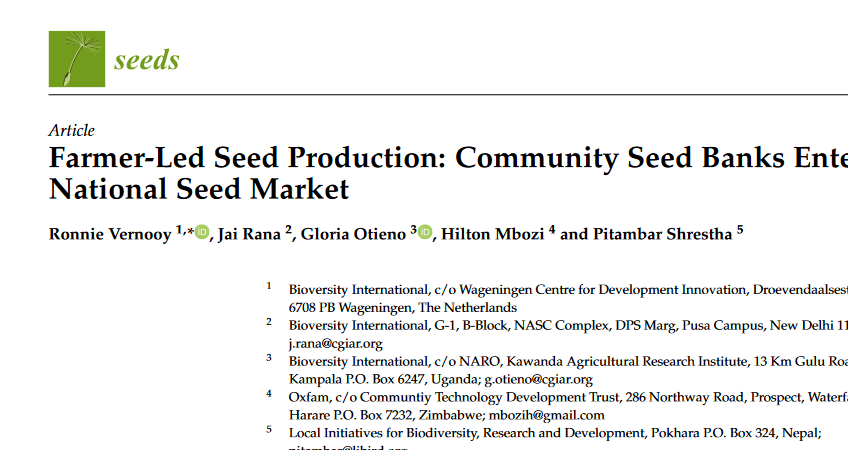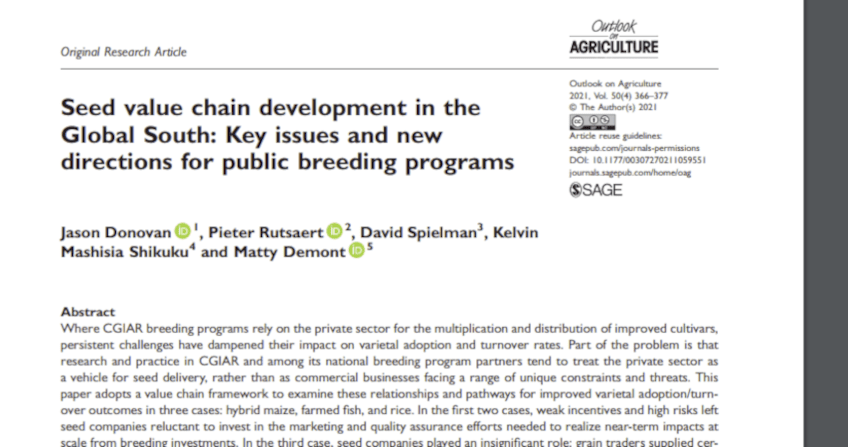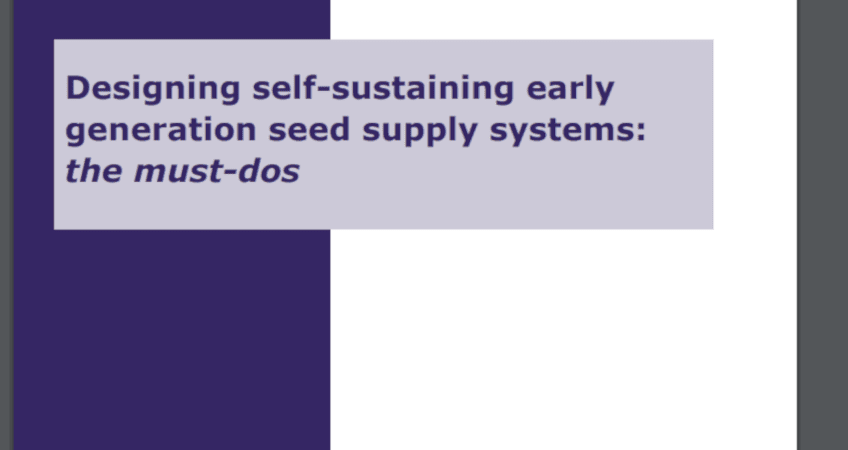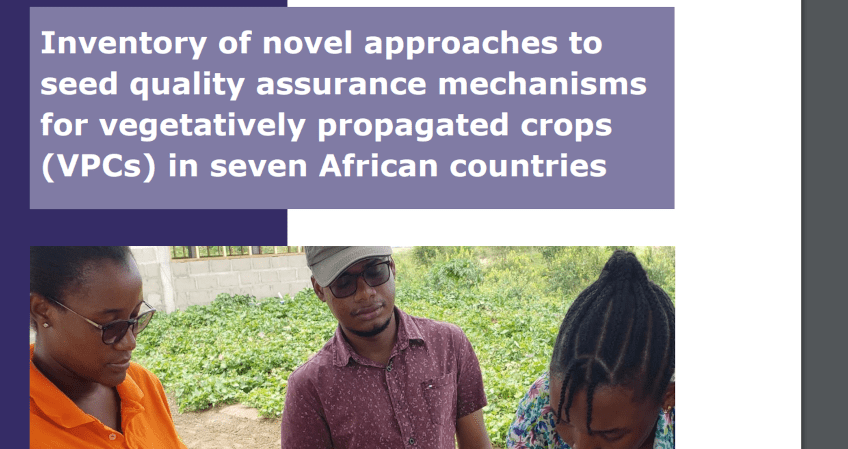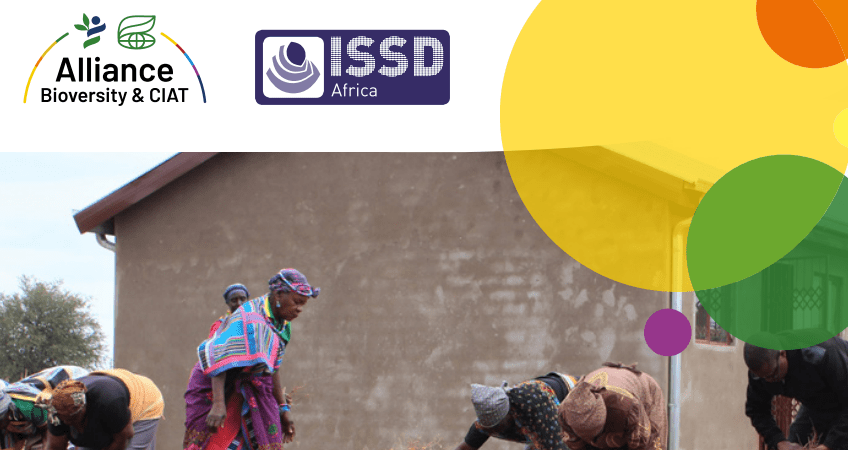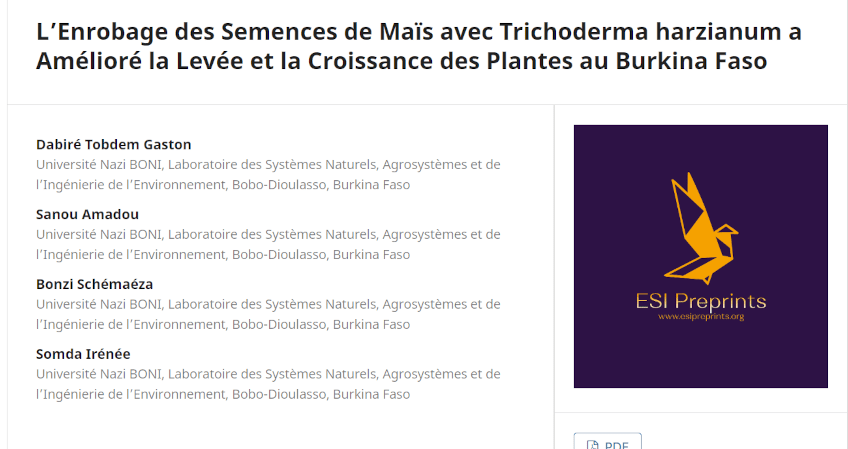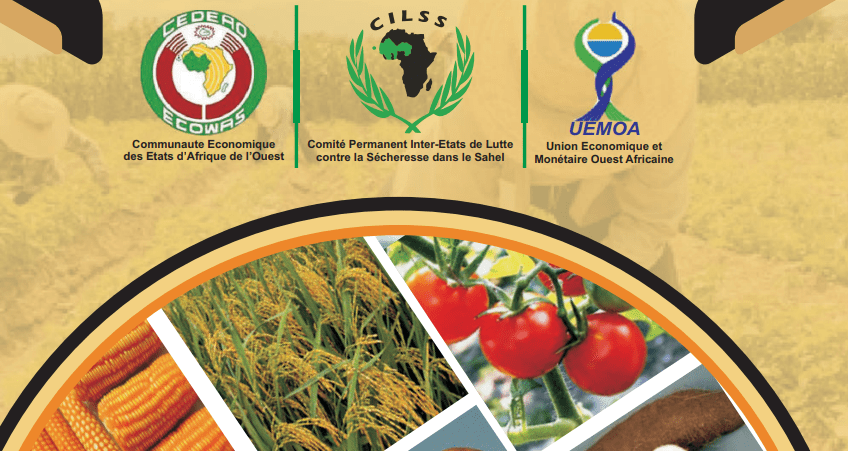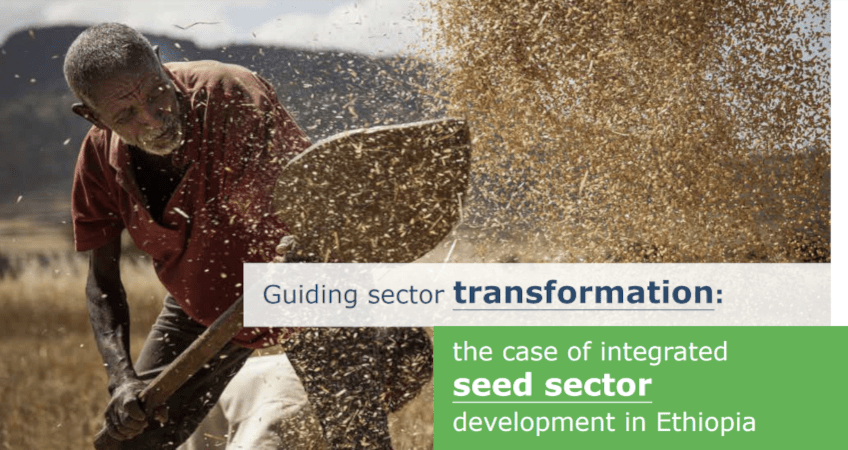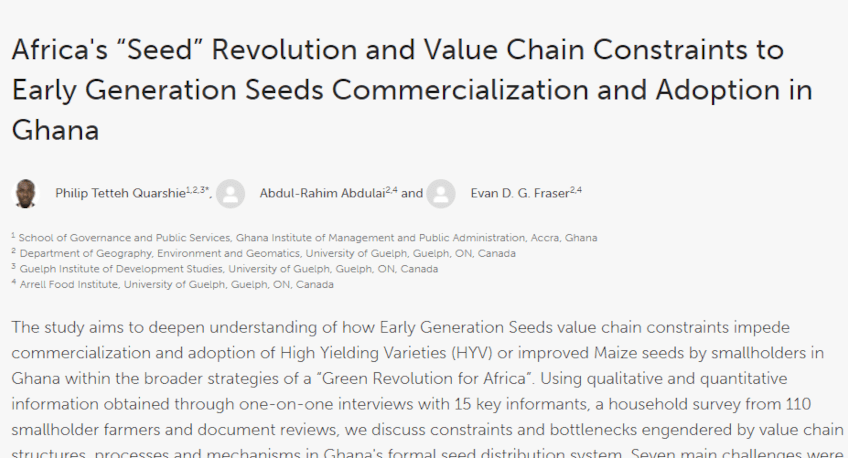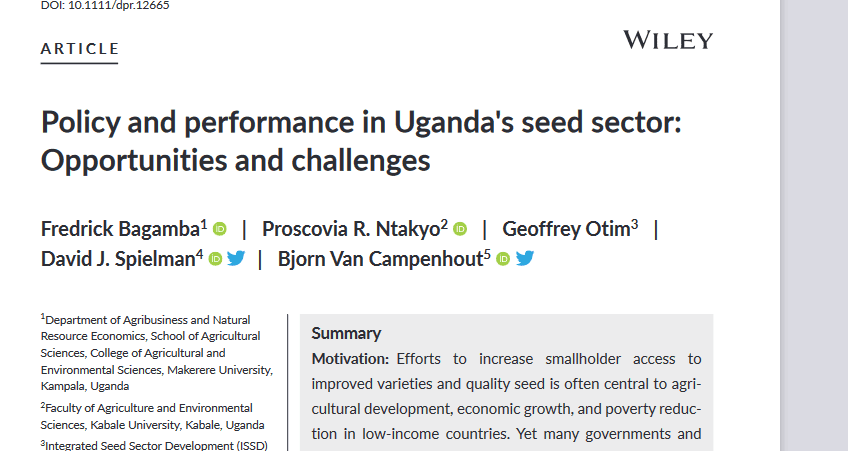
Week 105 – Research Article: Policy and performance in Uganda’s seed sector: Opportunities and challenges
Authors: Fredrick Bagamba, Proscovia R. Ntakyo, Geoffrey Otim, David J. Spielman, Bjorn Van Campenhout
Keywords: Uganda; innovations; reforms
“Motivation: Efforts to increase smallholder access to improved varieties and quality seed is often central to agricultural development, economic growth, and poverty reduction in low-income countries. Yet many governments and development partners grow impatient with slow progress in their seed sectors. Uganda stands out for its recent policy innovations, regulatory reforms, and market experiments for seed, and for the extensive analysis of its experience..” […]
Click on the following link to access the content: https://onlinelibrary.wiley.com/doi/epdf/10.1111/dpr.12665
© John Wiley & Sons Ltd on behalf of ODI.
